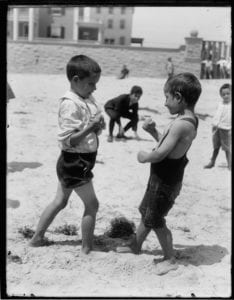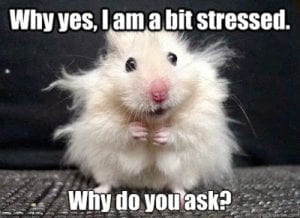Why Even Adults Need Social Emotional Education
So much of the rhetoric I see on social media and even in news commentary these days leads me to believe that we’ve done ourselves a great disservice by not including SEL in our formal school systems before now. One of the most important indicators of mental health and acuity is the ability to think beyond black and white and, if debates around gun violence and sexual harassment, homelessness and social programs are any indication, we are a nation of people who struggle with that skill on many levels.
Many of my friends and peers grew up in households where authority was King; where parents were in control of everything until the kids turned 18 and left. Others grew up in homes with one parent who struggled to manage things by themselves and often gave up, leaving kids to their own devices. Many in both of these scenarios grew up without a notion of unconditional love – there was a sense that if one didn’t toe the line (or got caught), the punishment went beyond being grounded to losing their parents’ love and affection.
If I don’t hold everything together, things will fall apart.
When I first became a parent (and for years afterward), this was my mantra. And on one level, it makes perfect sense. Except that it assumes that the world revolves around me and it puts an awful lot of pressure on me to make everything perfect all the time. The truth is that most things hold themselves together just fine much of the time, and even if they do fall to pieces, it’s not necessarily my fault. And yet, I know so many parents who feel this way – that they have to do everything “Right” in order for life to be ok. I watched my father embody this mantra every single day of his life, believing that if he just did things the way they were supposed to be done, life would go smoothly. The flip side of this is that when things went sideways, he was certain there was some answer out there that he just hadn’t discovered yet, so he had to keep trying. It kept him from learning from his mistakes and improving on his techniques over time because he was sure there was just something amazing right around the corner. It also kept him doubting himself and feeling like a failure because he hadn’t found it yet.
He also struggled with giving his children unconditional love. He taught us that he would love us and shower us with praise if we didn’t screw up. And when we did make mistakes (just like we are designed to), he withheld his affection to show us how disappointed he was in us. In that way, we learned that love was a commodity, not a certainty. We learned either/or instead of both/and.
What we learn from social-emotional education is how to step beyond questions of Right and Wrong, Success and Failure, Reward and Punishment. One of the hallmarks of adult brain development is integration, the ability to hold two seemingly opposed ideas or feelings simultaneously. That means that I can be tremendously hurt by something one of my kids did or said and express love and care for them at the same time. I can explain to them why their behavior was inappropriate and out of bounds and acknowledge that the reason they acted that way was because they were in pain. I can express empathy for their struggle and impose boundaries on them simultaneously.
Most of our public conversations center around ideas of Right and Wrong. Our political system is divided in to two opposing parties whose representatives stand for seemingly incongruent ideals. Our popular culture is peppered with sayings like “you’re either with us or against us.” These messages are reinforced in headlines that tell us what we “should” or “shouldn’t” do, in the way we talk about pro- and anti- (gun, vaccines, abortion, death penalty), and in our schools’ Zero Tolerance policies around bullying and hate speech. Instead of taking up the mantle of helping our young people learn how to integrate, we are showing them how to further entrench themselves in black and white thinking. I am encouraged that there are more schools whose culture is beginning to embrace social-emotional learning and restorative justice practices and I hope it continues at a record pace. And I think it’s well past time that the adults in this country spend more time and energy learning these things, too, if only so that we can lead by example for our kids.






